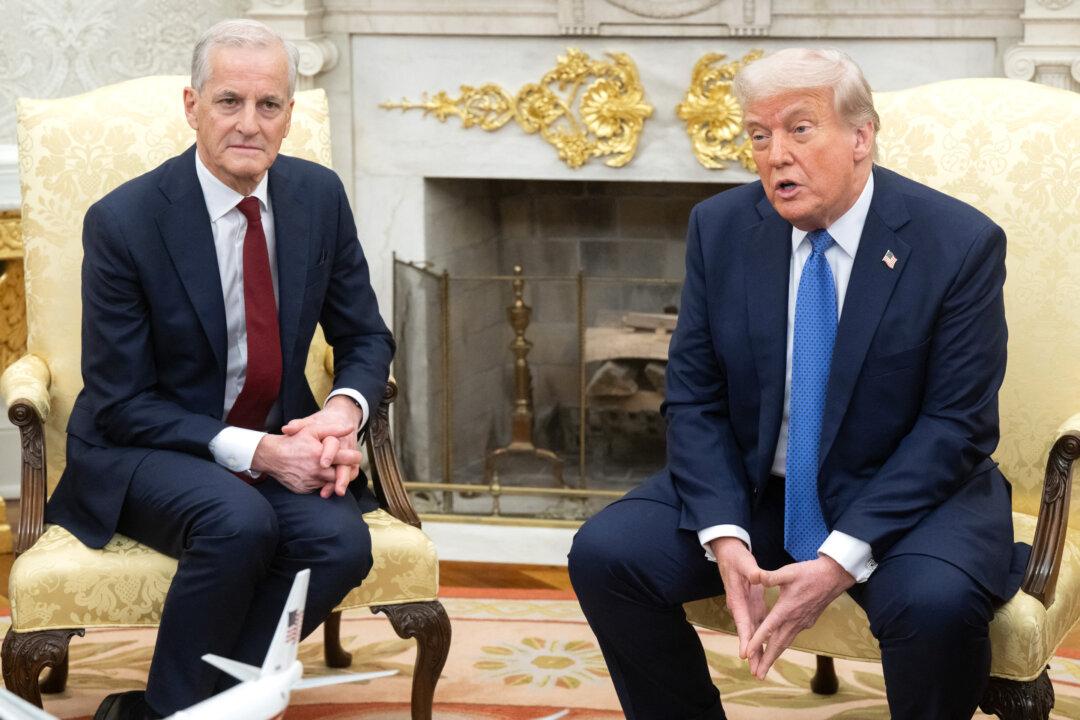WASHINGTON—Norwegian Prime Minister Jonas Gahr Store met with U.S. President Donald Trump at the White House on April 24 in a diplomatic overture that blended pragmatism and strategic alignment.
“I’m very honored to have the highly respected, the great prime minister of the Kingdom of Norway with us today, who, as you know, has been doing a fantastic job and [is] truly respected throughout the world as a leader,” Trump said before a lunch gathering with some Cabinet members and the Norwegian delegation.





